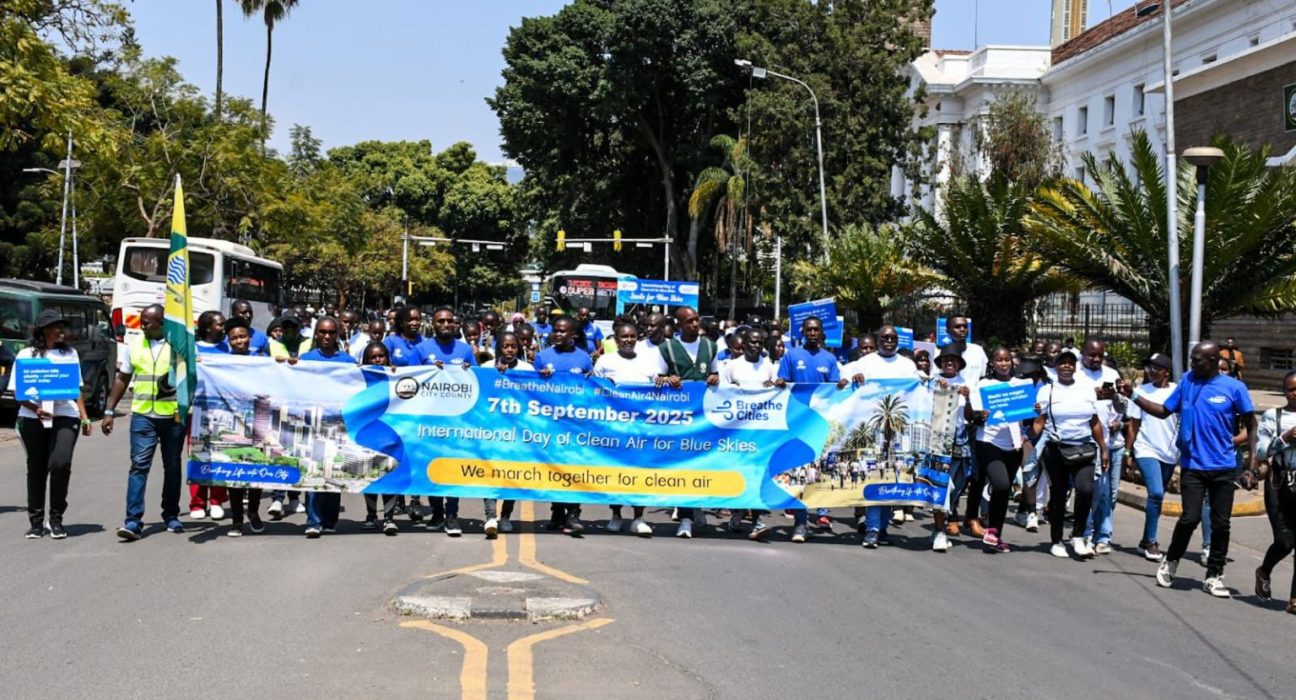By Jim Mwanda
On Sunday, Nairobi paused for five minutes to breathe. As motorists at Kencom, Moi Avenue, and Kenyatta Avenue turned off their engines during the symbolic “Stop the Engines” campaign, the silence carried a powerful message. Clean air is not just an environmental issue, but a matter of life and death.
The city’s skies, clouded with fumes and dust, are costing Kenya more than 5,000 lives every year, leaving millions battling asthma, respiratory disease, and heart complications.
For many Nairobians, the struggle with polluted air is deeply personal.“Every evening I watch children in Kibera coughing and struggling to sleep because of the smoke and dust around us,” said Lawrence Otieno, a young artist whose work was displayed during the day’s exhibitions.
Through his paintings, Lawrence captures the daily toll of pollution on ordinary families, while imagining a city where children can run and breathe freely.
Health experts warn that without urgent action, pollution-related illnesses and deaths in Kenya could rise by more than 50 percent by 2050.
“Fuel matatus, buses, personal cars and boda boda riders should avoid idling and switch off engines when not in motion to reduce air pollution,” urged Geoffrey Mosiria, Nairobi County Chief Officer of Environment.
He also highlighted partnerships such as the Breathe Nairobi initiative, which is deploying data-driven solutions to track emissions.
Nairobi has already been ranked Africa’s second most polluted city, with harmful particulate matter (PM2.5) levels consistently above safe limits.
In 2020, the average stood at 14.7μg/m3, nearly three times the WHO guideline, placing residents at high risk of cancer, cardiovascular disease, and chronic respiratory conditions.
The event concluded at Central Park with exhibitions showcasing clean transport innovations, solar energy solutions, and awards for students who participated in the Air Quality School Competition.
Yet beyond the celebrations, officials and campaigners delivered a sobering warning: if the city does not strengthen interventions against vehicle emissions, industrial pollution, open waste burning, and poor waste management, Nairobi’s health and economy will pay a heavy price.
As the Africa Climate Summit 2 opens today in Addis Ababa, Nairobi’s Clean Air Day offers a critical reminder.
“The right to breathe clean air is a right to life,” said one health campaigner at the march.Climate justice is inseparable from health justice. The same actions that cut greenhouse gas emissions clean transport, renewable energy, and better waste systems, can save lives today.
For ordinary Nairobians like Lawrence and countless others, the fight for clean air is not about distant targets, but about surviving each breath.







